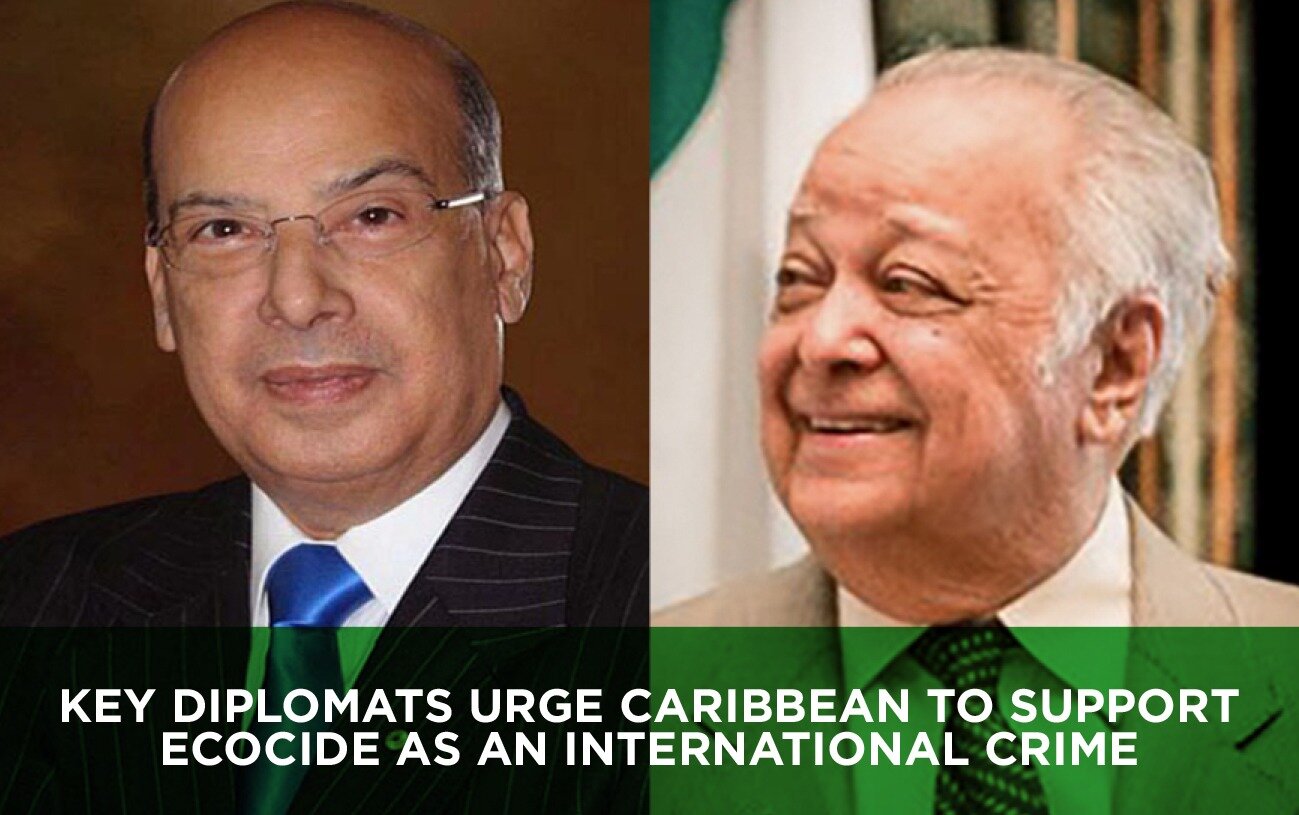Key diplomats urge Caribbean to support ecocide as an international crime
Antigua & Barbuda’s Ambassador to the US Sir Ronald Sanders has welcomed the recently completed legal definition of ecocide as “heartening news”. He stated it “would open the door for criminal prosecutions against entities that cause ecological damage” such as oil spills, or nuclear accidents to which he notes “the Caribbean has long been exposed.”
Sanders recalled that “it was a Caribbean man, A.N.R Robinson, former prime minister of Trinidad and Tobago who, in 1989, revived the idea of the International Criminal Court (ICC) with jurisdiction over international crimes. He triggered the process that eventually led to the adoption of the Rome Statute – the Court’s founding treaty that came into force in 2002. Large tasks have been taken on by small countries to success when they act together.”
He joins his voice to that of Sir Shridath Rampal, international lawyer and former Secretary-General of the Commonwealth, in welcoming the definition. Rampal, in a recent public statement, urged “serious global support for the work of the Independent Expert Panel for the Legal Definition of Ecocide, organised by the Stop Ecocide Foundation. Their ‘Commentary and Core Text’ of a definition of ‘ecocide’ as an international crime deserve humanity’s urgent attention.”
Sanders’ conclusion was unequivocal: “Every country in the Caribbean should embrace and promote the draft law to make ecocide an international crime. Doing so would give them the support of a further strand of international law which, along with diplomacy, is a principal tool for the defence of their interests.”



